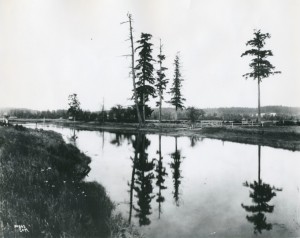Submitted by The office of Denny Heck (D-Washington)

To honor the life and legacy of an American champion for Native American treaty rights and environmental stewardship, today Representative Denny Heck (D-Wash.) introduced the Billy Frank Jr. Tell Your Story Act.
If passed, H.R. 2270 would designate the wildlife refuge on the Nisqually River Delta as “The Billy Frank Jr. Nisqually National Wildlife Refuge.” The legislation also creates a National Historic Site at the location of the signing of the 1854 Medicine Creek Treaty, and requires the U.S. Secretary of the Interior to involve the Nisqually, Muckleshoot, Puyallup, and Squaxin Island Tribes in the development of educational materials for the National Historic Site.
“When Billy Frank Jr. told his story, he was a fisherman trying to do what was right. But in the story of our state, he is a leader who inspired a movement for justice, and dedicated his life to collaborating with others in order to safeguard our environment for everyone,” Heck said. “When visitors come to the wildlife refuge, I want them to sense the spirit of Billy Frank Jr. and the work of all of the tribes to defend and preserve our beautiful land and resources. Without that context, the background and history of our area gets lost. This is a way to preserve not just the refuge, but the stories surrounding it.”
Cosponsors include the entire Washington state Congressional delegation (Reps. Suzan DelBene, Jaime Herrera-Beutler, Derek Kilmer, Rick Larsen, Jim McDermott, Cathy McMorris-Rodgers, Dan Newhouse, Dave Reichert, Adam Smith), Congressional Native American Caucus Co-Chairs Tom Cole (R-Okla.) and Betty McCollum (D-Minn.), Chair of Subcommittee on Indian, Insular and Alaska Native Affairs Don Young (R-Alaska), and Ranking Member of the House Natural Resources Committee Raúl Grijalva (D-Ariz.).
Background

Billy Frank Jr. was known as a tireless champion for treaty rights, tribal sovereignty, and salmon recovery. He was on the front lines in the campaign against state-imposed limits on tribal fishing, known as the Fish Wars in the 1960s and 1970s where he organized “fish-ins”—modeled after the sit-ins of the civil rights movement. Those efforts lead to the 1974 Boldt decision, which reaffirmed the Tribes’ rights to half of the fish harvest in Washington.
Billy Frank Jr. was awarded the Albert Schweitzer Prize for Humanitarianism and the Martin Luther King Jr. Distinguished Service Award, and was nominated for the Nobel Peace Prize in 2010. As chairman of the Northwest Indian Fisheries Commission (NWIFC), Frank worked to bring together tribes, local, state, and federal officials to further strengthen treaty rights and environmental protection laws.
The Nisqually National Wildlife Refuge was established in 1974 to protect the Nisqually River Delta, a biologically rich and diverse area at the southern end of Puget Sound. While most major estuaries in the state have been filled, dredged, or developed, Nisqually River’s has been set aside for wildlife. Last year the Nisqually Wildlife Refuge Visitor’s Center was named after Congressman Norm Dicks, a friend of Billy Frank Jr. who pushed for federal support to complete the acquisition of the Refuge and protect the Nisqually Delta.
The Treaty of Medicine Creek, signed on December 26, 1854, established reservation land as well as the right to fish “at all usual and accustomed grounds and stations” for Puget Sound area tribes.
















































